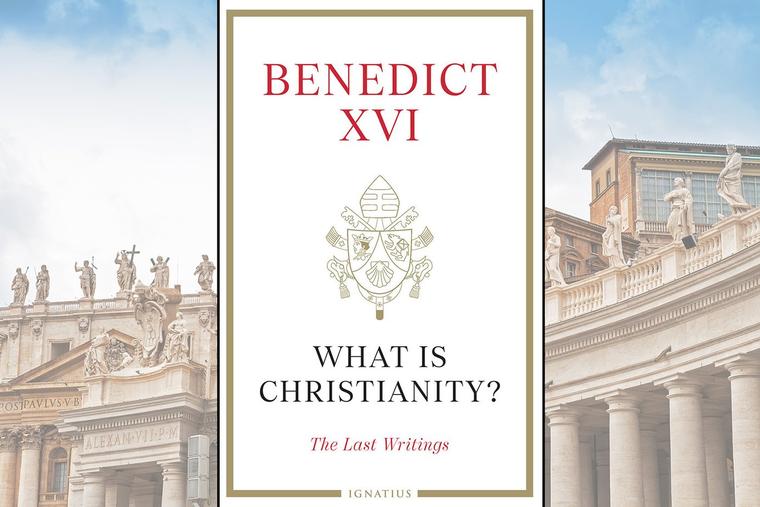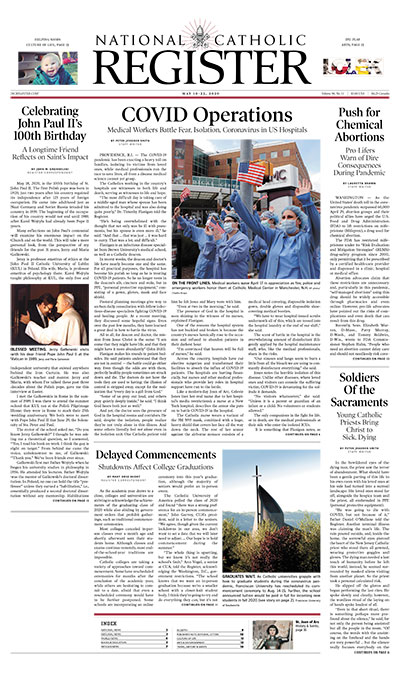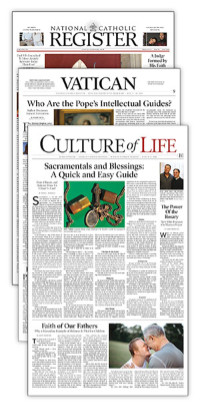A New Look at Benedict XVI’s Last Writings
Benedict XVI’s What Is Christianity? The Last Writings brings together 18 publications by the Pope Emeritus

What a great gift to the Church was Pope Benedict XVI! He was a kind and faithful leader who opposed relativism and demonstrated a love for the ancient traditions of the Church, reintroducing the traditional Mass and traditional papal garments, and encouraging the use of Latin. He was a prolific author, penning three encyclicals (including Deus Caritas Est) and some 66 books of theology.
The beloved pontiff announced his resignation in February 2013, citing the limitations of age, particularly a “lack of strength of mind and body.” But living in the quiet of the Mater Ecclesiae Monastery on the grounds of the Vatican Gardens, the Pope Emeritus continued to work diligently until his death in December 2022.
So imagine the joy of Catholic theologians and readers to learn that Benedict’s writings during the years of his retirement have been collected and published in a single volume by Ignatius Press. Benedict XVI’s What Is Christianity? The Last Writings brings together 18 publications by the Pope Emeritus, ranging from public lectures to theological treatises, to a personal interview he’d granted. There’s a collection of letters he’d exchanged with a rabbi on the topic of Jewish-Christian relations. Also included is an essay on the sexual abuse crisis within the Church, and a personal reflection on the priesthood and the Eucharist.
Benedict planned, as his life drew to an end, to give us this last gift of his thoughtful reflection and prayer. However, experience had shown him that an article, once published, might elicit criticism; and he didn’t want to spend his last years engaged in conflict, and so he stipulated that this final book was not to be released until after his death. Theologian and author Elio Guerriero explains in his Introduction to the book:
This led to a hue and cry, after which the pope emeritus wrote to me that he consented to my request to publish his writings, but set a mandatory condition: ‘For my part, I want to publish nothing more during my lifetime. The fury of the circles in Germany that are opposed to me is so strong that if anything I say appears in print, it immediately provokes a horrible uproar on their part. I want to spare myself this, and to spare Christianity, too.’
But here’s the reader’s reward for reading this final treatise from the good pope: Benedict himself had written updates and corrections to his earlier works, explaining a point that may have been misunderstood, or changing his emphasis in a treatise. Sometimes he published an article as it had been originally presented, but then appended a deeper explanation.
Benedict’s previously unpublished reflection on the meaning of Communion looks at historical forms of the Eucharistic celebration, comparing the Catholic understanding of the Eucharist with Protestant “table fellowship.” His article on the priesthood emphasizes the priest as sacerdos, representing the community before the Father.
He writes about the sexual scandals that plague the Church, and how the Church must move forward — not, as some say, by creating a “new” church of our own design, but rather, by a renewal of faith in the reality of Jesus Christ given to us in the Blessed Sacrament. And there are little surprises the reader is not likely to have encountered previously, like Pope Benedict’s introduction to the Russian-language edition of his Collected Writings.
Pope Benedict closes his book with an article on St. Joseph, and the important role of the saint in his own life. In it, he reveals tender moments from his childhood — such as how his mother painstakingly prepared for the feast of St. Joseph, buying a book with her personal savings, getting out a special tablecloth, baking a cake with frosting and serving freshly-ground coffee, although his family could not generally afford such treats.
Pope Benedict’s What Is Christianity? will give Benedict’s admirers new material on which to reflect, and a new look at some old material. It’s likely to top the best-seller lists just coming out of the gate!
- Keywords:
- benedict xvi












